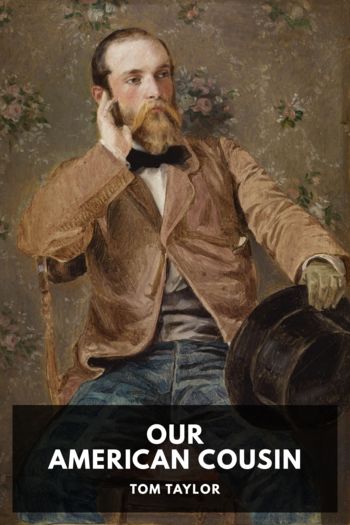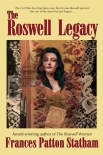Daughters of the Summer Storm, Frances Statham [classic reads txt] 📗

- Author: Frances Statham
Book online «Daughters of the Summer Storm, Frances Statham [classic reads txt] 📗». Author Frances Statham
Shaun Banagher. Was the man Marigold had loved already buried in some obscure cemetery on the outskirts of Charleston? Maranta had no way of finding out if he was dead or not. That had made it so difficult to compose a letter to Marigold.
Aboard ship, in the long hours when there had been nothing to do, Maranta had attempted to write a letter to her twin—dozens of times—only to have the proper words elude her each time.
Would Marigold feel comforted, even if Shaun were dead, to know that he had not abandoned her that night after all? Or would it cause an irreconcilable breach when she realized that her husband Crane Caldwell had deliberately deceived her?
Maranta, absorbed in her dilemma, followed Dona Isobel through the massive brazilwood doors and onto the street where the heavy, ornate, black coach with the golden crest emblazoned on its side waited.
Ruis was standing near the carriage, his eyes fixed on Maranta as she approached. Remembering their earlier encounter, she blushed and lowered her glance to the birdcage in her hands.
Unintelligible words were spoken in low tones between Ruis and the black-clad woman, and to Maranta's consternation, Dona Isobel hurried back into the hotel, leaving her alone with the arrogant man.
"Are you ready to get into the carriage?" Ruis asked, as she stood hesitantly beside the footstool that had been placed by the vehicle.
"I. . . I think I'll wait for Dona Isobel. . ."
"It will be a long time to stand in the sun, menina," Ruis replied. And in a teasing voice he continued, "Vasco might not be pleased to have a freckle-faced noiva delivered to him."
"I don't freckle, senhor," she informed him, but already Maranta had switched Fado's cage to the other hand and placed one foot upon the stool.
Strong arms encircled her, and Maranta, lifted bodily into the coach, protested this close contact with the conde.
"Please, senhor," she said, "I can manage by myself."
"Can you, little one?" he said, his eyes taking in the pale yellow dress, the delicately shaped face, and the small hand that fluttered nervously in distress. "I wonder. . ."
He sounded almost sorry for her. And then, abruptly, his tone changed to the familiar disparagement. "This trip will be no delightful picnic excursion into the country, Maranta. Someone should have informed you, so you could have dressed appropriately."
"You do not approve of my dress, senhor?" she asked, meeting his bold, dark eyes with her angry ones.
"Oh, I approve, all right. Probably even more than my charuto-smoking friends inside. But that has nothing to do with it. You'll see what I mean before the day's over."
Fingering the delicate streamers of ribbon attached to the skirt of her yellow dress, Maranta turned to gaze in the direction of the ships in the harbor. The Beaufort was nowhere in sight. It had already sailed with its load of coffee. And that knowledge made Maranta forlorn.
The breach was complete. Despite her wishes, Maranta was in an unfamiliar land—a present for a man who would probably turn out to be just as arrogant as his brother.
In relief, Maranta saw Dona Isobel appear with the condessa at her side. And the conde's attention turned to the two women, leaving Maranta to nurse her bruised feelings.
Whatever she did was wrong. But why should it matter to the conde about her dress? She would be sitting inside the coach, while he, in his rough shirt and pants and polished boots, would more than likely ride the large black stallion that was tied to the back of the carriage.
Maybe the conde would like it better if she were clad in black like the condessa and Dona Isobel. But she possessed nothing that color in her wardrobe. Besides, black was for mourning.
Perhaps it would be appropriate, Maranta thought, biting her lower lip unconsciously. For had she not lost everything now that was dear to her—her family and her dream? Despite the humidity and heat of the morning air, Maranta shivered.
Into the carriage, Ruis helped the condessa and then Dona Isobel. But to Maranta's consternation, he stayed inside the carriage, also.
Out of the port city they went, heading for São Paulo, fifty miles away. The ornate wheels of the Monteiro family coach rolled in a lumbersome motion over the rough road that constantly disappeared under green vegetation. With umbrella leaves blotting out the sunlight at times, the carriage moved through the rain forest. And the conde, his mind preoccupied, ignored the other three passengers and the constant bumping of the carriage, while Maranta, gritting her teeth, took care that she was not thrown into the arms of Ruis Almeida José da Monteiro, Count of Sorocaba.
8
For almost an hour they rode, meeting no one. Then, suddenly, men on horseback appeared out of nowhere, blocking their path, and beside them were fierce-looking dogs, their spiked collars glinting in the sun.
Ruis, reaching underneath the carriage seat, casually took the gun from its hiding place as the carriage slowed and then came to a stop.
Maranta was frightened. But Ruis, displaying no outward fear, jumped from the carriage and walked forward to meet the men.
"Do you think they will harm him?" Maranta whispered to Dona Isobel.
At her question, the condessa laughed. And before Dona Isobel could explain, the condessa answered, "No, Maranta. They are some of Ruis' best gauchos."
"He. . . knows them?" she responded doubtfully.
"Of course. They take care of the Monteiro cattle on the pampas. But they have come to help with the carriage. It is very rough from now on until we reach the plateau."
"But the dogs. . ."
"Are an added protection," the condessa finished.
Now relaxed, Maranta leaned out the carriage window to get a better view of the lush, tropical growth. She reached over to touch the velvet-soft leaves just beyond the window, when a giant hand seized hers and pushed it away from the foliage.
"Keep your hands inside the carriage, Maranta," the man barked.
"But I only wanted to touch the leaf. . ."
"Meu Deus!"





Comments (0)